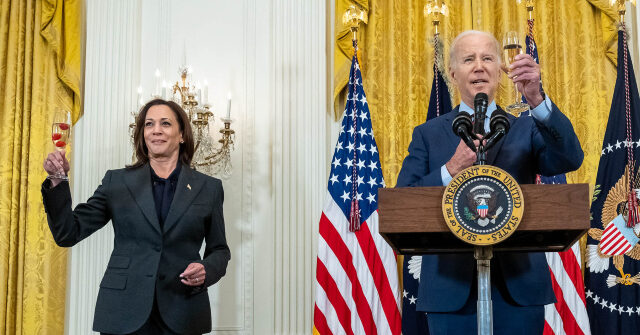On November 20, 2024, President Joe Biden marked his 82nd birthday, further extending his record as the oldest sitting president in U.S. history. Born in 1942, he has surpassed the age at which previous presidents such as Ronald Reagan, Dwight D. Eisenhower, and Andrew Jackson left office—Reagan at 77, Eisenhower at 70, and Jackson at 69. Biden’s age has led to heightened scrutiny regarding his physical and mental fitness for office, especially as he heads into the latter part of his presidency. This ongoing concern has sparked discussions not only within the Republican Party but also among Democrats who fear that his age could jeopardize electoral success in the future.
Throughout his presidency, Biden’s age has become a focal point for critics and political opponents, stirring discussions about his mental acuity and ability to handle the demands of the role. Vice President Kamala Harris has defended Biden’s competency, asserting that he remains capable of making crucial decisions for the country. However, during a pre-election interview, Harris notably sidestepped questions regarding any personal concerns about Biden’s mental faculties, instead highlighting her observations of his decision-making abilities. Her avoidance of confronting the issue directly raises questions about the level of unease even among his close advisers regarding the president’s age.
In that same interview, Fox News host Bret Baier pressed Harris on her perception of Biden’s mental state over the nearly four years of their tenure. Her responses emphasized Biden’s professionalism and experience, yet there was a clear lack of direct answers concerning his perceived diminished mental faculties. The lack of a straightforward acknowledgment from Harris, who has spent extensive time working alongside Biden, opens up a broader dialogue about the discomfort within the Democratic Party regarding the president’s age and fitness to continue serving.
Meanwhile, Republican criticisms of Biden intensified as his presidency unfolded, with Donald Trump’s historic comeback victory in the subsequent election posing a significant challenge for the Biden administration. Trump, who will also be 82 at the end of his second non-consecutive term, capitalized on the narrative surrounding Biden’s age, attempting to portray himself as the more vigorous candidate. Although Harris attempted to redirect criticisms toward Trump, the electoral success Trump achieved—winning 312 electoral votes and sweeping all seven swing states—reflects a potential miscalculation by Democrats regarding public perception of their leader’s capability.
Public sentiment towards Biden’s age and mental acuity has been vocalized by various commentators and voters alike. Even Biden himself has faced tough inquiries about his age, including pointed questions from reporters. In response to concerns, Biden has retorted with the phrase, “Watch me,” insisting that American citizens are judging his performance, not media portrayals. However, as polling suggests, many citizens remain apprehensive about his age and its implications on leadership effectiveness, particularly as the political landscape evolves and competition heats up.
Ultimately, Biden’s advanced age not only raises questions about his immediate capacity to serve but also signifies broader ramifications for the Democratic Party and its political strategies going forward. Despite his insistence on being the most qualified candidate to fulfill presidential duties and “finish the job” he started, the discourse around age, health, and fitness continues to shape the electoral map. As the Biden administration seeks to navigate these complex challenges, a concerted effort may be needed to reassure both party members and the electorate of his capability to lead effectively in the years ahead.

